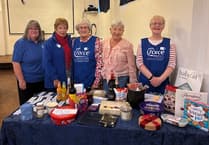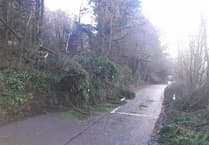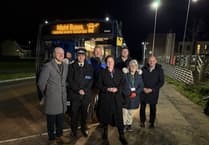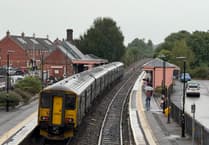A WEST Devon firefighter has raised the alarm over scrapping a scheme which sees on-call firefighters respond to medical emergencies as well as fires.
The co-response scheme involves 20 fire stations across Devon, including Princetown, Hatherleigh and Crediton, Moretonhampstead and Ivybridge.
It sees firefighters trained in first aid and resuscitation provide a ‘first on the scene’ response, particularly in rural areas.
The South Western Ambulance Service NHS Foundation Trust, which funds the service, believes the money can be more efficiently used to train and equip volunteer Community First Responders to attend cardiac arrests and other emergencies.
Firefighters were told that the scheme was being axed last week. It will be phased out over the next 12 months.
A spokesperson for the South Western Ambulance Service NHS Foundation Trust said the cost saving was ‘significant’ and volunteer Community First Responders (CFR) would have ‘an enhanced level of clinical training to help them respond to patients’.
However, a West Devon firefighter who is a co-responder, said: “I think once this gets out, there will be quite a lot of upset because what they are proposing to do is try and replace firefighter co-responders with community-based volunteers.
“Don’t get me wrong, they do a good job in the community, but to knock this on the head when a lot of the fire stations have provided a service 24-7 for the last 28 years seems wrong. From my own perspective, there are people’s lives I have personally saved over the years who wouldn’t be here if we hadn’t responded.”
Princetown will lose its co-responder in the three months, Chagford in six and Crediton and Hatherleigh in a year’s time.
The firefighter, who wishes to remain anonymous, added: “No one saw this coming, because over the past two to three months all the co-responding stations have had new vehicles.”
A spokesperson for the ambulance service said: “In recent years we have been developing and strengthening our Community First Responder (CFR) volunteering model, and now have over 600 volunteer CFRs across the South West.
“They play a vital role in helping us to respond to 999 calls and deliver emergency care to patients within their local community, often ahead of an ambulance arriving on scene.
“CFRs receive an enhanced level of clinical training to help them to respond to patients. CFRs can, with clinical support from the trust, administer pain relief and discharge patients at scene where an onward conveyance to hospital is not the most appropriate next step for them.
The spokesperson added: “The cost comparator between a fire co-responder and a SWASFT community first response officer is significant”.
“As part of the transition, we have invited fire co-responders to train to become CFRs, so they can acquire new skills and continue to help support their local community in a medical emergency. We are also extremely grateful to the fire and rescue services who have volunteered space on their sites for us to undertake local recruitment and training.”





Comments
This article has no comments yet. Be the first to leave a comment.